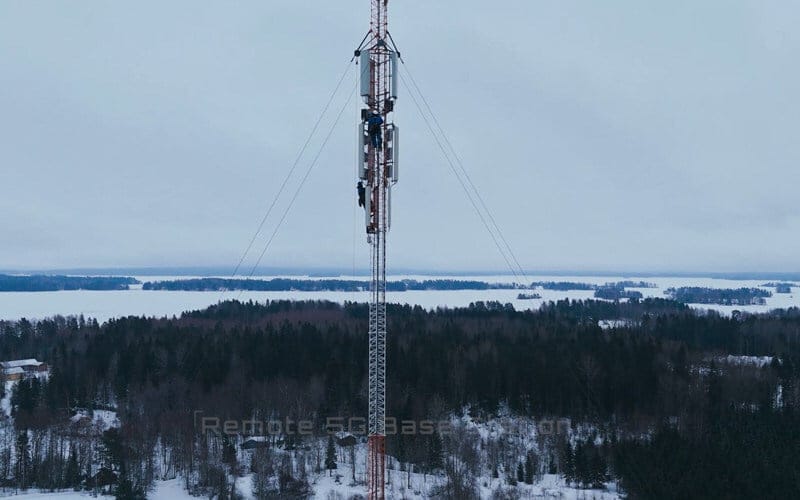The series “Being Digi-Sapiens” by Discovery reveals how new technologies are transforming life in remote areas and helping to combat the effects of climate change. The third episode, titled “Connecting with Nature,” follows Swedish inventor Simone Giertz on her journey through Europe, exploring cutting-edge solutions.
Finland: 5G Connectivity in the Heart of the Forests
In the most remote areas of Finland, where installing fiber optics would be prohibitively expensive, 5G technology is bridging the digital gap between urban and rural areas. Huawei has upgraded existing 4G equipment to provide high-speed 5G connectivity.
The key to success lies in the use of sub-gigahertz frequencies, such as the 700 MHz band, which allows antennas to cover large areas. Rural homes equipped with 5G routers can now enjoy Wi-Fi connections capable of supporting cloud gaming, video calls, and other data-intensive applications.
Finland is positioning itself as a European leader in 5G coverage, with recent achievements including:
– Successful test of mobile network speed at 10 Gbps by operator DNA
– Commercial launch of PON 50G by local operator Lounea
– Virtual battery solution by operator Elisa, using base station backup batteries to balance the power grid
Greece: Technology against forest fires and extreme weather phenomena
In Athens, Giertz discovers two crucial innovations to mitigate the effects of climate change:
Weather prediction with AI
Pangu Weather, an artificial intelligence developed by Huawei, promises to significantly improve the prediction of extreme weather events. Dr. Lingxi Xie, Huawei’s lead researcher, explains: “We have created a hybrid system that integrates the advantages of AI and conventional methods.”
Early detection of forest fires
In the Syggrou domain, a wooded area near Athens, an AI solution has been implemented to detect fires in very early stages. Over 500 sensors monitor the area 24 hours a day for smoke, airborne particles, dryness, or abnormal temperatures.
An enhanced version of this system, developed in collaboration with the National and Kapodistrian University of Athens (NKUA) and the startup PROBOTEK, not only detects fires but also:
– Analyzes their spread
– Forecasts evacuations
– Plans routes for emergency services
– Estimates the number of people affected
– Sends personalized notifications to residents’ phones with evacuation routes based on civil protection plans
These innovations demonstrate how technology can help communities adapt and respond to the challenges of climate change, while enhancing the quality of life in remote areas.

